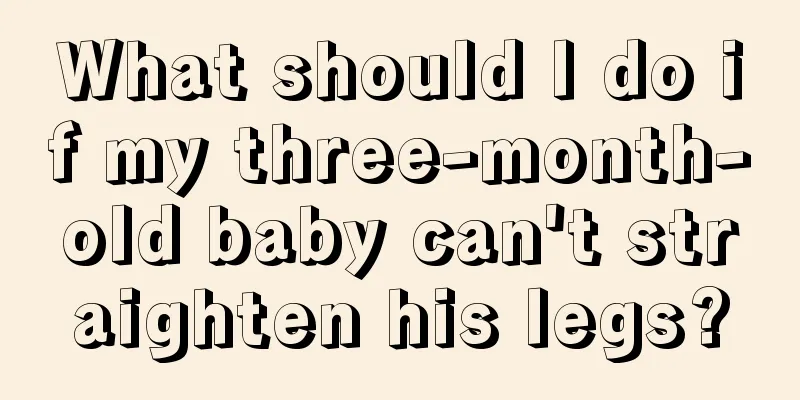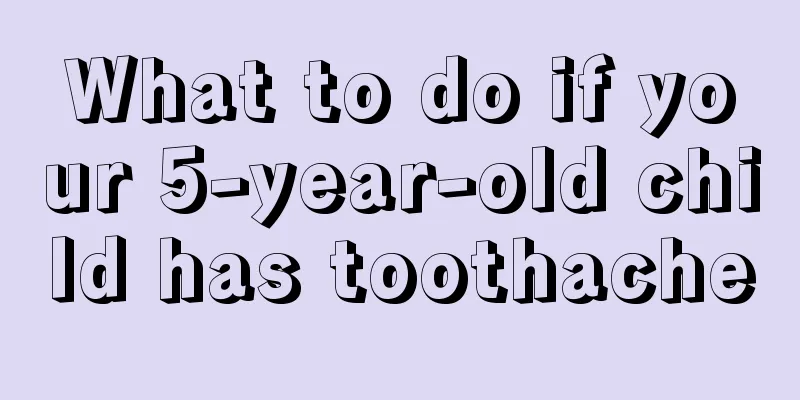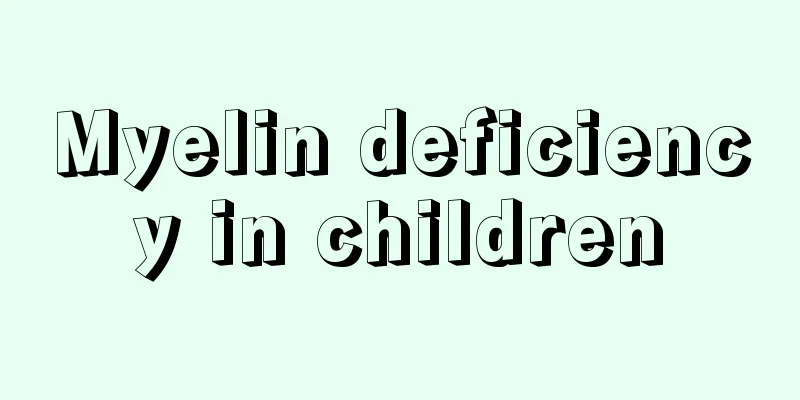Symptoms of normal phlegm accumulation in babies

|
If the baby has phlegm, he will make a "hissing" cough. Every child is unique and is the apple of their parents' eyes. Although phlegm accumulation is actually a normal phenomenon, if there is too much phlegm, it will affect the baby's physical health and even cause some injuries that cannot be faced in a lifetime. Let’s take a look at the normal symptoms of babies with phlegm accumulation. Sometimes a "hissing, hissing" sound may be heard in the throat, which is caused by accumulation of phlegm. Sometimes when I hold my baby, I can feel the sound with my hands, just like when I touch a cat's body. In the middle of the night or at dawn, the baby will cough "hiss, hiss". After drinking a lot of breast milk or cow's milk, he will sometimes spit out all the milk while coughing. But the baby himself is very healthy, often smiling, drinking milk well, and his body temperature is not high. Apart from the accumulation of phlegm, there was no change. A pediatrician from Ningbo Yinzhou Women and Children's Hospital said: Babies with phlegm accumulation have a constitution with slightly more active bronchial secretions. Just like there are individual differences in the secretion of sweat or saliva, there are also individual differences in bronchial secretions. Please note that just as a child who sweats frequently cannot be treated as a patient, a baby who makes "hissing" sounds due to phlegm cannot be treated as a patient. A child of this age will not be unable to sleep at night due to coughing. If he just makes a "hissing, hissing" sound, it is better not to treat him as a patient. The reason for saying this is that to treat children with a constitution of active bronchial secretions, exercising the skin and mucous membranes is the best method, and it is best to expose the baby to outside air. If he is treated as a patient, he will be locked in the room and will lose the opportunity to exercise. Some people often ask: "Is it okay to let such a child take a bath?" In fact, only the mother knows whether the "hissing" sound of the child has become more severe after taking a bath. If your baby starts making "hissing" sounds before anything else, don't give him a bath. However, if you are healthy and have no change in appetite on the second day, you can try taking a bath. If it still doesn't get worse, you can continue bathing. Bathing is both a stimulation to the skin and an exercise. The physique that is prone to phlegm accumulation can last for a long time. If you don't pay attention to it, it will gradually get better through exercise. If she heard it was "asthmatic," her mother would be even more shocked. However, as long as the baby is energetic, laughs often, and drinks milk well, this worry is unnecessary. In fact, what we should worry about is dad’s cigarettes. If dad can’t quit smoking, he should smoke outside the room. There has been a report that if a mother smokes 10 cigarettes a day, the incidence of asthma in her baby is twice that of a baby whose mother does not smoke. 3 to 4 months Some babies start to have this problem half a month after they are born. When the baby is about 1 month old, the main symptom is gurgling sound of phlegm in the chest. After 3 months, the baby's milk intake increases, and he is prone to spit out the milk when coughing at night, which makes the mother very panic. If the child is diagnosed with "childhood asthma" or "asthmatic bronchitis", it will be a huge blow to the mother. The tendency to accumulate phlegm is indeed related to physical constitution, but whether it is necessary to improve the entire physical constitution is worth discussing. Sweating easily is also a physical problem, but sweating does not require special treatment because sweating itself does not interfere with life. The same considerations apply to phlegm accumulation. Although the baby has phlegm in the chest and coughs incessantly in the morning and night, if the baby plays well, loves to breastfeed, and gains weight accordingly, the phlegm accumulation will not hinder the baby's normal life. When coughing, the baby may spit out the milk he has drunk. There is no need to worry about this. If the baby wants to eat, you can feed him some more. To prevent spitting up, the last milk feed at night can be reduced appropriately. Babies with phlegm accumulation will not necessarily become asthma patients when they grow up. Almost all babies with phlegm accumulation will have their symptoms alleviated before adulthood, and will gradually forget the experience of phlegm accumulation. Only a very small number of babies who lack exercise will become asthma patients when they grow up. Babies who easily accumulate phlegm should not be treated as patients. If the baby is in good spirits, does not have a fever, smiles often, and loves to breastfeed, he is a healthy baby. Don't overdress your baby and try to take your baby outdoors. Fortunately, babies with phlegm accumulation have good intestinal function, rarely suffer from diarrhea, and it is not difficult to feed them milk substitutes. From this point of view, it is a baby that is less worrying. Yinzhou Women and Children's Hospital reminds: Babies with phlegm must be bathed with caution, because bathing can promote blood circulation, increase bronchial secretion, and increase phlegm. If you notice that your baby has more phlegm after bathing than the previous day, it is best to stop bathing your baby. However, we cannot not bathe the baby for a long time just because the baby's phlegm accumulation condition has not been good. At this time, you can try a simple wash. If the phlegm accumulation does not change, you can bathe your baby once every other day. Mothers should understand the impact of bathing on babies with phlegm accumulation, and use experience to determine when is the most appropriate time for bathing their babies. |
<<: What are the benefits of eating pig brains for children
>>: What are the dangers of menstruation for a nine-year-old girl?
Recommend
What can children eat to get better quickly when they have a fever?
Children cannot eat seafood, eggs, or soy product...
Hydrocele in children
Testicular effusion is a common phenomenon among ...
How long should children take calcium supplements?
When it comes to calcium supplementation, there a...
Why do junior high school students lose their hair?
It is generally believed that only elderly people...
What to do if your child has eczema
Some children have weak constitutions and if they...
The white of the baby's eyes are a little yellow. Is jaundice serious?
Newborns have fragile and sensitive bodies and ca...
What should babies pay attention to when they have rhinitis and sinusitis?
Friends who have suffered from sinusitis know tha...
What to do if your baby has indigestion after eating milk powder
What should I do if my four-month-old baby has in...
What should I do if my 3-year-old baby coughs?
Coughing is not a disease, but once it starts, it...
How many months has the baby stopped spitting up milk?
We all know that when the baby is just born, the ...
What are the symptoms and treatment of infantile dysentery?
Infant dysentery is a common disease in infancy. ...
Why does my child keep having fever?
Once a child gets sick in life, it will make pare...
What are the causes of chest tightness in children?
With the development of society, the improvement ...
How to solve the problem of baby not eating nipples
In fact, parents will face many troubles when it ...
What are the clinical manifestations of ADHD in children?
Children with ADHD always have difficulty concent...









